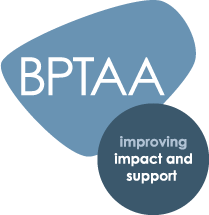Do you depend on personal friendships with TAs to get things done? Sara Alston discusses how to utilise working relationships with TAs effectively.

In any school, there are close friendships between some teachers and the teaching assistants (TAs) they work with. The realities of school mean that too often, schools depend on these friendships to cover for the lack of time and funding for proper liaison or training.
It needs to be effective to support children and their learning — any friendship is a bonus!
Part of the problem is that the role of the TA, as it currently exists, was never planned for. It developed gradually from parent helpers and ancillary staff, primarily supporting with practical tasks, to today's 'paraprofessionals' who often lead whole class learning.
This means that the role has developed differently in places with no standardisation in the expectations of TAs or the teachers working with them. Most TAs carry out multiple roles directly involved in learning, such as:
And non-pedagogical roles:
Added to the confusion about the nature of TAs' roles are questions about their impact and value. The DISS (2009) and MITA (2015) projects identified three key difficulties with TA effectiveness related to their preparedness, deployment, and practice.
This meant that although teachers highly valued TAs, they had little positive impact on children's learning. The research placed the responsibility for changing this with school leaders. However, while they maintain overall responsibility, the day-to-day responsibility for what TAs do in the classroom lies with class teachers.
The situation is exacerbated by a need for more training for either TAs or teachers on how to work together. The need for more guidance about how to deploy their TAs needs to be clarified by a view that a child with an EHCP is entitled to and needs one-to-one support, so a TA should be 'velcroed' to them.
This is rarely true, and it is better to build a team around the child so that they can work with all the adults in the room and access teacher time. Alternatively, too often, TAs consistently work with the 'low ability' groups meaning the most vulnerable children receive the least teacher time.
The key issues around deployment in the classroom are decided within the classroom and are often influenced by TA/ teacher relationships. This can only be effective if both are aware of the range of deployment options and are happy that they will be supported to implement them by the school's senior leadership.
Even where there is clarity about who works with whom, where and when in classrooms, there remains a key issue about 'what'. TAs' contracts often mean they enter the classroom alongside the children. This means they are making it up as they go along — learning the information they are expected to teach simultaneously as the children.
For a TA to follow planning, they need to see and understand it. However, only some are given time to read planning, and some do not even see it.
Most TAs know this is not an effective way to work, so give additional time. This time is often rooted in friendship with the teacher, not time identified by the school. As one teacher told me, 'My LA (Learning Assistant) and I constantly share ideas/discuss progress and next steps/ challenge. Normally over lunch!'
It is key that schools give time for staff to share planning, feedback, and broader information about the pupils. Without this, we are simply not making the best use of our TAs — who are an expensive resource. We should not rely on their goodwill and commitment to compensate for the school's time and budget shortfalls.
TAs consistently work with the 'low ability' groups meaning the most vulnerable children receive the least teacher time.
Even when TAs are deployed appropriately and given a chance to share planning, they still need to understand the learning content and the pedagogy of how children learn. This information is the basis of teacher training, but there needs to be a consistent system of qualifications or even requirements for appraisal or professional development for TAs.
There is little formal training for TAs. School budgets are tight, training is rarely a priority and training for TAs is even less so. Moreover, many schools' in-house training is focused on inservice training and staff meetings, but many TAs' contracts mean that they are not required to attend these, so they miss key professional development.
The issues are that TA training is increasing as difficulties with TA recruitment escalate, so finding someone with the right' attitude' often overrides concerns about qualifications or experience.
Underlying the TA training issue is school leaders' uncertainty about what they want their TAs to do — if you don't know what TAs are for, you will be unclear about what training they should provide them. This creates a vicious circle of minimal or inappropriate activity, exacerbating the lack of clarity about expectations or roles, leading to inadequate training to support TAs' career development or to help them to do their job better.
The reality is that most of a TA's training happens within the classroom and is provided by the teacher. Again, it depends on the teacher/ TA relationship for its success and impact.
Making the teacher/ TA relationships work is about the willingness to listen and learn. It is also key to respect all TAs' breaks and ensure they have time to do the basics, like go to the toilet or get a drink. Too often, an incident on the playground or a teacher or SLT's requests to do something eats into their breaks, so they don't happen.
We can all live with this occasionally, but we must beware of any erosion of a TA's right to a break and ensure that they are not made to feel guilty for taking them or pressured into staying after their hours.
For TAs to have a positive impact, the issues of preparedness, deployment and practice are increasingly only circumvented by the good personal relationship between the teacher and TA. This supports communication and creates a willingness and ability to make time for it. However, this should not be the basis for providing adequate support in the classroom.
Being a TA is a low-paid and demanding job, so the job needs to be rewarding in other ways. TAs need time, respect and training, and teachers need training and support to utilise TAs effectively. We shouldn't depend on friendships to make this key classroom relationship work.
It is a working relationship. It needs to be effective to support children and their learning — any friendship is a bonus!

The Best Practice with Teaching Assistants Award provides a framework for the strategic management of teaching assistants. You will develop clear systems of induction, appraisal, and professional development.
This will better support your teaching assistants and boost their impact on positive pupil outcomes.